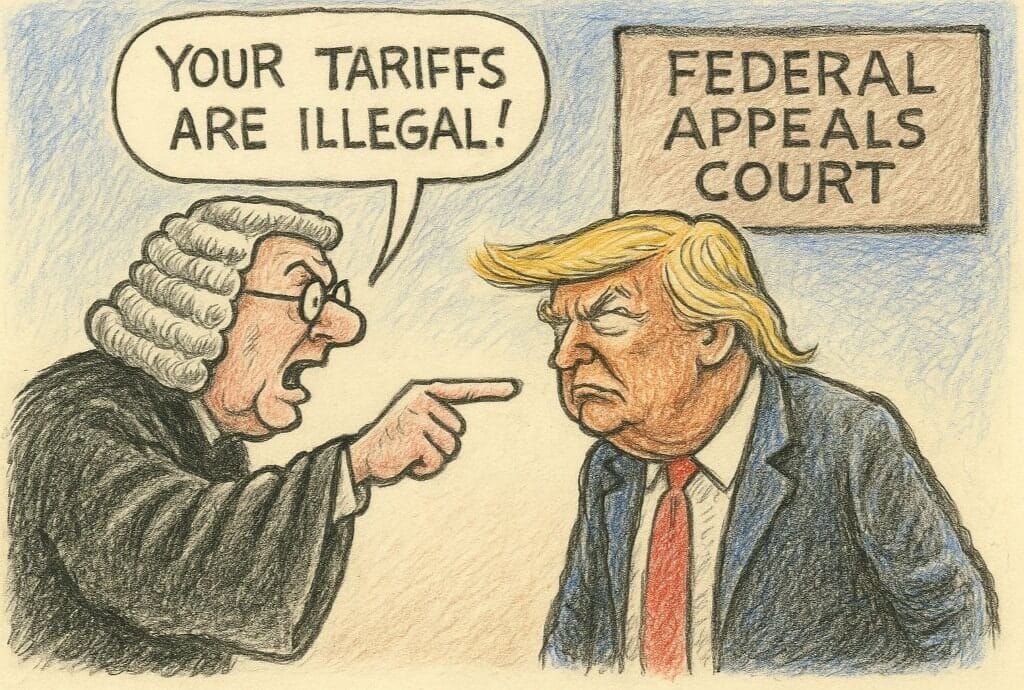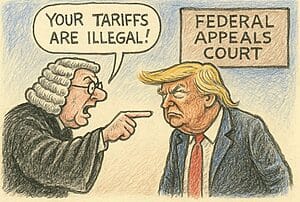In brief
- Supreme Court hears Uber appeal that could redefine gig work in NZ.
- Lower courts ruled Uber drivers are employees, not contractors.
- A win for unions could spike labour costs by 20–25%.
- Uber may exit NZ; 900+ drivers seek back pay.
- Decision could reshape contractor culture, small business survival, and future employment law.
New Zealand’s highest court is now deliberating on a landmark case that could dramatically reshape the way Kiwis work, and how businesses operate. The Supreme Court has heard the appeal from Uber, following the Court of Appeal’s decision in Rasier Operations BV v E Tū Inc [2024] NZCA 403, which confirmed a contentious Employment Court ruling that Uber drivers are employees, not independent contractors.
This appeal is no minor matter. Its outcome could send shockwaves through the gig economy, affect hundreds of thousands of self-employed Kiwis, and redefine the legal and economic future for all of us.
Court of Appeal: “Wrong approach, right result”
The Court of Appeal judges were notably critical of the Employment Court’s methodology. They concluded that the Chief Judge had misapplied section 6 of the Employment Relations Act (ERA), which defines who qualifies as an employee.
However, in a twist, they agreed with her conclusion—that Uber drivers were indeed employees while logged into the app. In essence, the court said: the reasoning was flawed, but the outcome was legally sound.
The case has now reached the Supreme Court, and the stakes couldn’t be higher.
Why it matters: NZ’s contractor culture
New Zealand has become a nation built on contractors. Over 97% of all enterprises are small businesses—many operated by solo contractors. Large companies and government departments have long favoured contracting models to avoid the substantial costs and compliance burdens of employing staff.
If the Supreme Court upholds the lower court rulings, hundreds of thousands of contractors could be reclassified as employees, forcing businesses to cover:
- Four weeks of paid annual leave
- Paid public holidays and sick leave
- Parental and domestic violence leave
- Employer contributions to ACC and KiwiSaver
Estimates suggest this could increase labour costs by 20 to 25% or more, according to estimates by business groups and employer advocacy bodies such as the EMA and BusinessNZ—a burden many small businesses may not survive.
Uber’s future in NZ at risk
Uber has warned it may exit New Zealand if forced to treat drivers as employees. It’s not alone. Other gig-based platforms are closely watching this case, concerned they will be affected.
Currently, Uber drivers enjoy the freedom to:
- Choose their own hours
- Select their vehicle and phone
- Work for multiple platforms or employers
- Operate where and when they choose
If classified as employees, they risk losing this flexibility, which many drivers say is the very reason they joined the platform.
Over 900 Uber drivers have already filed claims with the Employment Relations Authority, seeking back pay and entitlements—a financial liability that could run into the tens of millions.
Economic consequences: “Winning the battle, losing the war”
Unions backing the case argue workers deserve the full protection of employment law. But critics warn they may be “winning the battle and losing the war.” If businesses exit, prices rise, and unemployment grows, everyone loses—including the very workers this ruling aims to protect.
New Zealand is already near the bottom of OECD productivity rankings. Adding more cost and compliance to already-struggling SMEs could further erode our international competitiveness.
Employers beware: The Tony Gibson precedent
This case also underscores how high the accountability bar has become for employers. In the Tony Gibson case, the Ports of Auckland CEO was personally fined $300,000 for failing to ensure health and safety compliance—despite the company having a safety manager and supervisors. It signalled a chilling message: ultimate responsibility lies at the top.
If the Supreme Court reinforces the view that contractors are actually employees, businesses will need to radically rethink their workforce models—or brace for the legal, financial and reputational fallout.
What next?
The Supreme Court is expected to deliver its decision in the coming months. Regardless of the outcome, this case has become a defining moment for the gig economy, employment law, and New Zealand’s economic future.
This government is poised to change the law if the Court upholds the decision. However, if a Labour government is elected next year, it’s likely to support unions and embrace this decision.
The question now is whether our courts will prioritise the reality of modern work—or hold fast to traditional employment frameworks that may no longer reflect the way Kiwis want to work.
Max Whitehead is an Auckland-based employment law expert and is available for further comment or to be interviewed at www.whiteheadgroup.co.nz



















